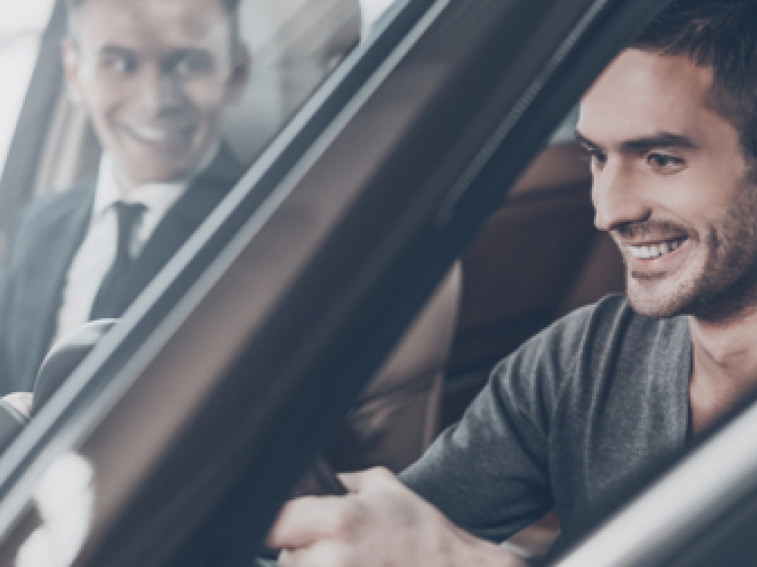We cater to a broad range of customers in our online car auctions. As regular readers may well know, a sizeable proportion of these are professional mechanics looking for cars to fix up or take apart for spare parts, but used cars in good working order are also often highly sought-after by first-time drivers. And as every driver knows, buying your first car can be a bit of a minefield. There’s a lot to consider, and a lot of decisions you’ll need to make based on your personal circumstances (including the essential expenses of tax and insurance, of course!) To make things a little easier, we’ve summed up some of the key aspects you’ll need to think about when buying your first car.
1. Should you buy a new or used car?
To be honest, if you’re a first time driver, then going for a used car is going to be your best option. Obviously everybody likes the idea of a shiny new vehicle, but the first (and most obvious) factor to consider is the fact that the price will be significantly higher than that of a used car. There are of course perks to this, such as the manufacturer’s warranty, and you can get some perfectly good new cars on finance. However, one of the key things to remember is that cars start to depreciate in value almost as soon as they leave the showroom. After 3 years on the roads, any given secondhand car will be worth only about 30%-40% of its original price, which is a lot of money to watch go down the drain if you’re a first time driver! Used cars, therefore, can offer you equally long years of service at only a fraction of the price, easily saving you hundreds of pounds.
2. Should you go for a bigger or smaller car?
Again, the answer is pretty clear here too. A large car like a Land Rover or something equally bulky is probably not going to be your best bet as a first time driver. Apart from anything else they’re hugely expensive to buy, run and insure. What’s more though, their manoeuvrability can be an issue, while their sheer bulk can pose obvious issues for someone still getting a sense of their spatial awareness as a driver. Smaller cars are nimbler and easier to control, and also significantly cheaper to ensure. This cost-effectiveness even extends to their engines, as a smaller engine naturally burns less fuel than a larger one (except in certain circumstances, which we’ll come to in a moment). This is why you see very few first time drivers in vehicles such as a Renault Scenic or Toyota Hilux - it often doesn’t make a lot of financial sense! Smaller cars like a Toyota Aygo or even a humble Ford Focus are much better options.
3. Automatic or manual?
To be honest, that depends on your confidence! The vast majority of new drivers learn with manual cars, so they won’t pose that much difficulty. However, if you’re an especially nervous first time driver (which is always understandable), an automatic gearbox takes one less consideration out of the equation for you when driving, which can make things easier and more pleasant. However, automatic cars tend to be more expensive than manual ones, so it depends on whether you’re willing to make the tradeoff.

4. Petrol or diesel?
This is a tricky one, especially as the ‘best choice’ seems to flip back and forth year-on-year at the moment. It’s true that diesel cars tend to be more economical than their petrol counterparts, but that doesn’t make them an automatically better option. Again, part of the reason for this is cost - diesel cars are more expensive, and cost more to fuel up. What’s more, at the time of writing the government is actively discouraging diesel cars, as they’re viewed to be more polluting.
5. What do I need the car for?
To be honest, this could be the subject of a whole other article - and indeed, here on our blog, probably will be! But we’ll touch on a couple of examples - if you’re going for hour-long plus commutes back and forth every day, you’ll need to factor that in to your car choice, as an otherwise economical vehicle might have to burn up more fuel to get up to speed on the longer, higher-speed motorways. If you’re just going short distances every now and again, on the other hand - say, to the next town over - a smaller vehicle will probably do you just fine. It all depends! And if you’re in the market for your first car, you’ll find we’ve got a fantastic range of them right here at RAW2K. We stock vehicles from a whole host of global manufacturers, including Ford, Peugeot and Vauxhall - all of whom are known for producing models that are reliable and reasonably priced - perfect if you’re just starting out on the roads. (Don’t forget that before you buy your car, your insurance needs to be in place before you can drive it!)




